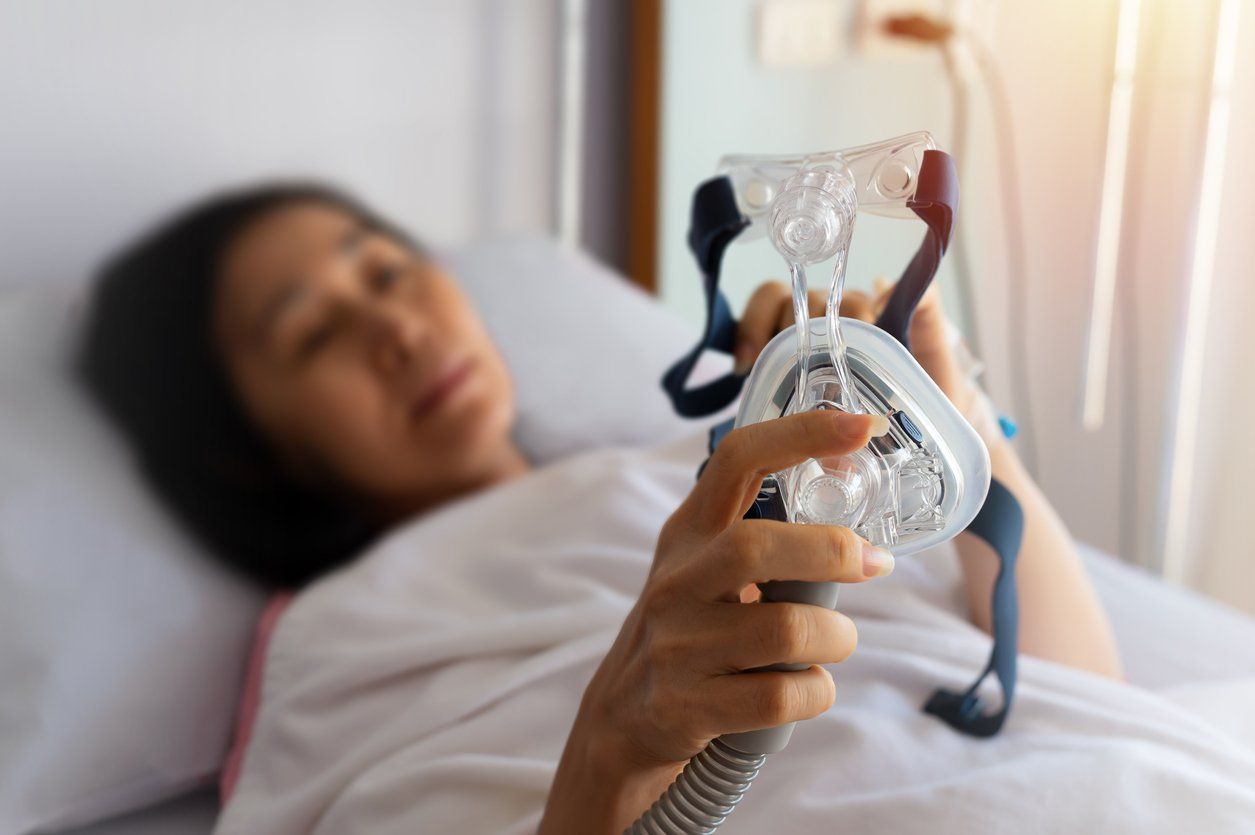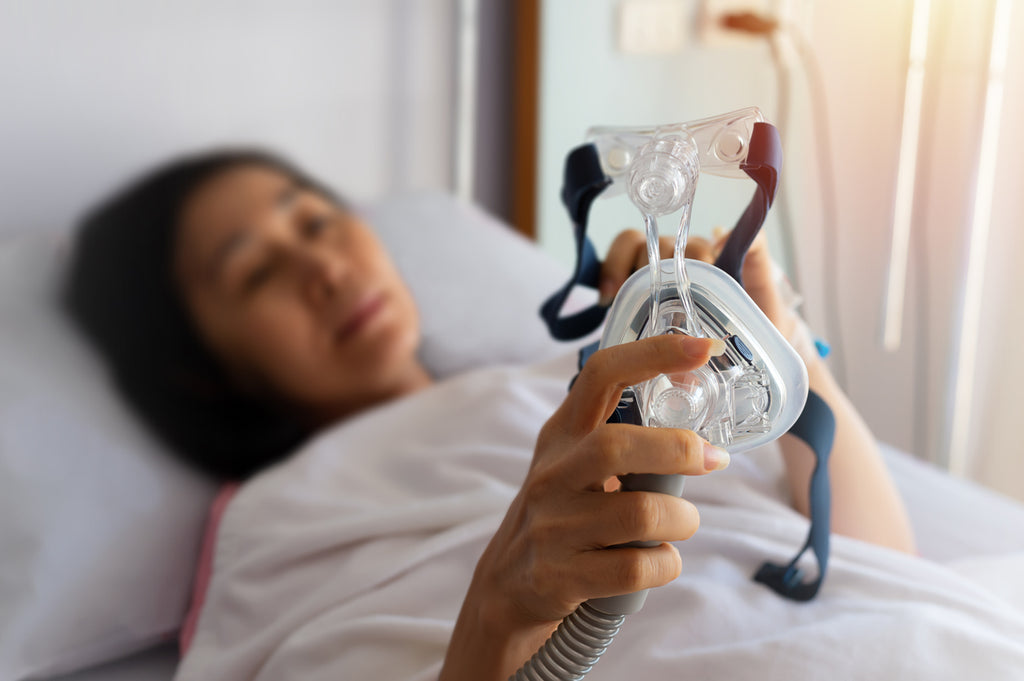The 11 Dangers of Sleep Apnea You Need to Know


If you snore loudly, chances are you've heard a few jokes about it. However, sometimes snoring isn't a laughing matter and could provoke a more serious problem called obstructive sleep apnea.
Sleep apnea means "without breath during sleep" and causes people's nightly breathing patterns to briefly and sporadically come to a halt. This is definitely a dangerous sleep disorder that's not to be fooled with.
You'll be surprised to know that there are over 20 million Americans suffering from sleep apnea and for those with this common type of sleep disorder, many are undiagnosed.
So what creates obstructive sleep apnea? While you lay flat to go to sleep, gravity pulls the soft tissues of your neck and lower throat causing the airway to shrink or become blocked by the tongue. As you sleep, you may become very restless or snore; your spouse may even notice that you stop breathing for 10 seconds or possibly longer and your body will jerk you awake.
This is quite scary for both to experience! What's worse, is this could go on for 100 times per night and you may not even be aware of it.
There are a whole host of things that will put you at risk for sleep apnea — or aggravate it. Let's explore the dangers of sleep apnea now.
1. Heart Disease
The stress of frequent awakenings during the night or decreased oxygen could be factors for trouble with the heartbeat rhythm — atrial fibrillation — as well as a stroke. On account of the breaks in oxygen, your brain will find it difficult to control the blood flow in the brain and arteries, which means it's more likely that you could possibly die or sustain a heart attack or stroke sometime in the night.
2. Alcohol
Most of us like to unwind and relax from a busy work week with some drinks on a Friday evening. But if you're one who suffers from sleep apnea, you may want to dial it back a bit. While you're sleeping off your drinks, your respiratory tract is subject to blockage because your tongue and throat muscles are very relaxed.
As the alcohol works its way through your body, the effects will disappear — but this is a dangerous game to play for those who suffer from obstructive sleep apnea and it's best to limit yourself to one alcoholic drink.
3. Sleep Position
Sleeping on either side is good because there isn't any weight pressure on your airway. But if you're a back sleeper, you could have problems due to the tongue relaxing further back in your throat. You could temporarily stop breathing.
Yet, it's possible to train yourself to sleep on your side with positional therapy devices. There are plenty of choices out there. One is a belt with a pillow fixed to its back; it keeps you on your side throughout the night. You'll find it very uncomfortable if you roll over on your back while sleeping with this device hooked around you.
4. Smoking
If you haven't quit smoking yet or are thinking of quitting — this should be a fantastic reason to stop. Not only will smoking increase your chances of getting sleep apnea, but it'll intensify breathing issues for people who already have sleep apnea.
Cigarettes are a definite irritation to your upper airway, uvula, tongue, soft palate and throat; eventually, this area will swell and momentarily prevent you from breathing. Likewise, smoking is a powerful spark for asthma symptoms and the major cause of the chronic obstructive pulmonary disease (COPD).
5. Weight Gain
Roughly two-thirds of those who have sleep apnea are overweight and the danger of getting sleep apnea will increase if you gain a lot of weight. It's hard to do, but you can alleviate sleep apnea if you're able to return to a proper weight.
Your metabolism is slowed when you're afflicted with sleep apnea which will make you gain weight. Fatty deposits can develop in the neck when a person is overweight, thus, obstructing their breathing during sleep.
However, it seems that sleep apnea can be the contributing factor to weight gain since it affects the discharge of ghrelin, a hormone that makes you crave sweets and carbs. When people seek treatment for their sleep apnea, they might discover that they have more energy to do workouts and other activities that get them moving.
6. Medications
You wouldn't expect this to be a risk, would you? But the fact is there are certain medications that will cause trouble.
Sleeping pills, for instance, cause difficulty waking from sleep — a pain must be more intense, a sound must be louder, etc. Unfortunately, that also means a sleep apnea episode needs to last longer for your brain to awaken and revive your breathing.
Muscle relaxants, which are prevalent in many sleep medicines, create more obstructive sleep apnea and snoring episodes.
Even painkillers — especially opioids — are troublesome. These medications will increase and provoke inhibited breathing during your sleep.
7. Daytime Grogginess
People that have sleep apnea often suffer from daytime fatigue. This raises the danger of dozing off when you're behind the wheel of a car. In fact, you're up to five times more prone to traffic accidents than people without sleep apnea.
8. High Blood Pressure (Hypertension)
For people who have sleep apnea, their hormonal system can become overactive due to their sleep irregularity; thus, causing hypertension. Likewise, the cut-off of oxygen results in low oxygen in the blood and could be conducive to high blood pressure. But, there is good news — if you're being treated for sleep apnea and have hypertension, there's a possibility, in time, that you could decrease the blood pressure medication.
9. Sleep Deprivation
Deep sleep — we all need it and if we're not getting the proper amount of sleep, our body will crave it. Yet the rapid eye movement (REM) sleep is when sleep apnea can be at its worst due to your heavy relaxation. This is why it's essential to get the right amount of sleep each night. Then again, sleep deprivation can be the result of sleep apnea; thus, making a vicious cycle.
10. Anatomy Issues
There are people who have abnormalities that may cause sleep apnea. Tt all has to do with the area at the back of your mouth and start of your throat. Things like a deviated septum, enlarged adenoids, larger-than-normal tonsils or a tiny airway can be problematic.
Most often these are problems for kids but if you're an adult that hasn't had surgery to correct the issue, it could put you at risk for obstructive sleep apnea.
11. Diabetes (Type 2)
Up to 80% of people with diabetes have some trouble with obstructive sleep apnea. Diabetes is impacted by how severe your sleep apnea is. The opposite is also true: there's a connection between severe obstructive sleep apnea and not properly controlling your blood sugar. If you don't have diabetes, a lack of sleep could lead to insulin resistance which is a predecessor to diabetes.
The connection between sleep apnea and parasomnias (like sleepwalking) and memory loss and other added dangers of health problems can be frightening. But there are successful treatments that are available.
Your doctor may recommend that you try an over-the-counter oral device. If this doesn't work, your doctor may suggest you see a sleep specialist; the sleep specialist will order a sleep study and if required, a CPAP machine. CPAP stands for Continuous Positive Airway Pressure and, simply put, this machine blows air to keep your airway open. It will take some time to get used to using this apparatus; however, those who use one tend to become healthier, feel better and get a more restful night's sleep and often find they can't sleep without it. Surgery is a last resort if the oral device or CPAP isn't helpful.
If you think you or your spouse suffer from sleep apnea, please get in touch with your doctor to address the dangers of sleep apnea. Your life (or theirs) could depend on it.
Please contact us for more information.




